November 16 to November 30 - abbey
Main menu:
- Home Page
- Abbey
- Apiary
- Documents
- Monastic
- Spirituality
- Apostleship of the Sea
- Homilies of Pope Francis
November 16 to November 30
God’s weakness for the prayers of his people
‘God has a weakness for the prayers of his people. Indeed, prayer is man’s greatest power. Therefore, we must never tire of knocking at the door of God’s heart and asking for help. For, God is a relentless warrior when he is called upon to defend his people.’ This was the heart of the homily Pope Francis delivered at Mass on Saturday, 16 November.
The Pope commented on the Readings of the day taken from the Book of Wisdom and the Gospel of St Luke (18:1-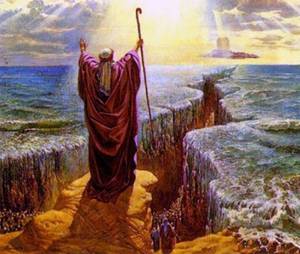 In the first Reading from the Book of Wisdom, the omnipotent God is portrayed as a mighty warrior leaping from heaven. When the Lord takes to the defence of his people, he is a mighty warrior who saves his people. He saves, he renews all things: the whole of creation was fashioned anew, according to its own nature as it had been before. In the Book of Wisdom (18:14-
In the first Reading from the Book of Wisdom, the omnipotent God is portrayed as a mighty warrior leaping from heaven. When the Lord takes to the defence of his people, he is a mighty warrior who saves his people. He saves, he renews all things: the whole of creation was fashioned anew, according to its own nature as it had been before. In the Book of Wisdom (18:14-
The Readings, provide us with an opportunity to meditate on God’s mighty power. The Church draws her children’s attention to this mystery especially during the liturgical season of Christmas, since the climax of God’s power, of God’s salvation, happened with the Incarnation of the Word. The Book of Wisdom says: “For while gentle silence enveloped all things, and night in its swift course was now half gone, thy all-
It is a pleasure to listen to these readings with the Canons of St Peter’s, since your chief work is to knock on the door of God’s heart … to pray to the Lord for God’s people. And you, who reside in the basilica closest to the Pope, where prayers of petition are gathered from around the world, you receive these petitions and present them to the Lord by your prayer. You are like the widow. You must pray, ask, knock at the heart of God every day. The widow never tired, she was always courageous.
Addressing the Canons, the Pope concluded: The Lord listens to the prayers of his people. You are privileged representatives of God’s people who exercise the role of praying to the Lord for the many needs of the Church, of all humanity, of everyone. I thank you for this work. Let us always remember that God has the power to change everything — all creation was fashioned anew — he is able to fashion everything anew. However, he also has a weakness, our prayer, our universal prayer, close to the Pope in St Peter’s. Thank you for your service; and continue on for the good of the Church”.
We do not negotiate our fidelity to God
In his homily at Holy Mass on Monday, 18 November, Pope Francis warned that an insidious snare is running through the world: the snare of the “globalization of hegemonic uniformity”. It is marked by a “uniformity of thought” which leads people to deny their own traditions and even their very identity.
The Pope commented on the first Reading of the day taken from the Book of Maccabees, which portrays Antiochus Epiphanes’ suppression of the observance of Jewish laws and his desecration the temple of God after many among the Jewish people were misled into abandoning their traditions. Pope Francis called it “one of the saddest pages in the Bible” in which we see “a great part of the people of God withdraw from the Lord in favour of worldly proposals”. This worldliness comes out of a sinful root, out of wicked men capable of intelligent persuasion”. The first reading says: ‘Let us go and make a covenant with the Gentiles round about us’; we cannot become isolated or remain stuck in our old traditions. ‘Let us go and make a covenant with them, for since we separated from them many evils have come upon us’. The proposal so pleased them that some of the people eagerly went to see the king, to bargain with the king, to negotiate!
This worldliness comes out of a sinful root, out of wicked men capable of intelligent persuasion”. The first reading says: ‘Let us go and make a covenant with the Gentiles round about us’; we cannot become isolated or remain stuck in our old traditions. ‘Let us go and make a covenant with them, for since we separated from them many evils have come upon us’. The proposal so pleased them that some of the people eagerly went to see the king, to bargain with the king, to negotiate!
They were enthusiasts. They believed that the nation, the people of Israel, would become a great people as a result. Of course they did not ask themselves whether or not it was just to adopt this progressive attitude, this attitude of moving forward at all costs. It is like the modern ‘spirit of adolescent progressivism’ which seductively suggests that it is always right, when faced with any decision, to move on rather than remaining faithful to one’s own traditions. The people bargained with the king, they negotiated with the king. But they didn’t negotiate habits… they negotiated fidelity to God, who is always faithful. And this is what we call apostasy; the prophets called it adultery. They were an adulterous people who negotiated something essential to their very being, i.e., their faithfulness to the Lord.
Many people accepted the king’s orders “which prescribed that all the people in his kingdom should be one: and every one should leave his own law”. It was not the ‘beautiful globalization’ which is expressed in the ‘unity of all nations’ who each preserve their own identity and traditions. No! The passage describes the ‘globalization of hegemonic uniformity, a uniformity of thought born of worldliness. Still today, the spirit of worldliness leads us to progressivism, to this uniformity of thought. Indeed, just as when the book of the covenant was found in anyone’s possession they were condemned to death, so it is today in many parts of the world as we have read in the news in recent months.
Negotiating one’s fidelity to God is like negotiating one’s identity. In the 20th century novel ‘Lord of the World’ by Robert Hugh Benson, son of the Archbishop of Canterbury Edward White Benson, in which the author speaks of the spirit of the world that leads to apostasy almost as though it were a prophecy, as though he envisioned what would happen. Benson converted to Catholicism and was ordained a Catholic priest in 1904, before the novel was published.
We would do well to think about what happened in the Book of Maccabees, about what happened step by step, before we decide to follow an ‘adolescent progressivism’ and go along with what everyone is doing. We would also do well, to ponder the consequences of their infidelity, to think about the ‘death sentences, the human sacrifices’ which followed thereafter. Do you think there are no human sacrifices today? There are many, many of them. And there are laws that protect them.
What should console us is the truth that the Lord always remains the faithful One who cannot deny himself. He always waits for us, he loves us so much, and he is always ready to forgive us, even if we have taken a few steps down this path, and he is always ready to take us by the hand, just as he did with his chosen people when he led them out of the desert.
Grandpa’s table
In his homily at Holy Mass on Tuesday, 19 November, Pope Francis exalted the precious role of the elderly in the Church and in society. The Pope commented on the first Reading of the day taken from the Book of Maccabees, which recounts the story of Eleazar, the wise scribe ‘advanced in age and of noble presence’, who welcomed death with honour rather than partaking in unlawful sacrifice and succumbing to eating what was forbidden by Jewish law. When urged to save his life by pretending to eat unlawful food he refused, preferring to suffer and die rather than to give a bad example to others, especially to the young. Eleazar was credible and consistent to the very end. In his exemplary behaviour we see the role of the elderly in the Church and in the world.
“This man was unshaken when he was faced with a choice between apostasy and fidelity. He had many friends, but they wanted him to compromise: ‘Pretend so that you may stay alive’, they said. It is this attitude of pretending, of false piety, of feigned religiosity, that Jesus forcefully condemns with a strong word in Chapter 23 of St Matthew’s Gospel: hypocrisy. Yet this good man, at 90 years of age, who was good and highly esteemed by the people, does not think of himself. He thinks only of God, of not offending him through the sin of hypocrisy and apostasy. Yet he also thinks of the heritage he would leave behind. He thinks of those who are young. Eleazar asked himself whether he was leaving behind a compromise, an act of hypocrisy, or the truth, the truth which he had sought to follow his entire life. Eleazar, was a man whose faith was consistent and credible and who placed great importance in leaving behind him a ‘noble and true inheritance.’ We live in a time when the elderly don’t count. It’s unpleasant to say it, but they are set aside because they are considered a nuisance. And yet, the elderly pass on history, doctrine, faith and they leave them to us as an inheritance. They are like a fine vintage wine; that is, they have within themselves the power to give us this noble inheritance.
We live in a time when the elderly don’t count. It’s unpleasant to say it, but they are set aside because they are considered a nuisance. And yet, the elderly pass on history, doctrine, faith and they leave them to us as an inheritance. They are like a fine vintage wine; that is, they have within themselves the power to give us this noble inheritance.
Pope Francis then pointed to another man who was advanced in age and of noble presence, the aged Polycarp who was sentenced to the stake. When the fire began to burn, those around him could only smell the pleasant odour of fresh-
The Pope then recalled a story he was told as a young child. “There was a father, mother and their many children, and a grandfather lived with them. He was quite old, and when he was at table eating soup, he would get everything dirty: his mouth, the serviette … it was not a pretty sight! One day the father said that, given what was happening to the grandfather, from that day forward he would eat alone. And so he bought a little table, and placed it in the kitchen. And so the grandfather ate alone in the kitchen while the family ate in the dining room. After some days, the father returned home from work and found one of his children playing with wood. He asked him: ‘What are you doing?’ to which the child replied: ‘I am playing carpenter’. ‘And what are you building?’ the father asked. ‘A table for you, papa, for when you get old like grandpa’. This story has stayed with me for a lifetime and done me great good. Grandparents are a treasure”.
Returning to what the Scriptures teach us about the elderly, in the Letter to the Hebrews, we read: ‘Remember your leaders, those who spoke to you the word of God: consider the outcome of their life, and imitate their faith’ (13:7). The remembrance of our ancestors leads us to imitate their faith. It is true that old age is at times unpleasant, because of the illnesses it brings. But the wisdom of our grandparents is the inheritance we ought to receive. A people that does not care for its grandparents, that does not respect its grandparents, has no future since it has lost its memory. Faced with martyrdom, Eleazar was aware of his responsibility to the young. He thought about God, but he also thought about the young, saying: ‘I must give the young a credible example to the very end’.
We would do well to think about the many elderly men and women, about those who are in rest homes and also those — it is an unpleasant word but let us say it — who have been ‘abandoned’ by their loved ones. Let us pray for them that they may be consistent to the very end. This is the role of the elderly, this is the treasure. Let us pray for our grandfathers and grandmothers who often played a heroic role in handing on the faith in times of persecution. Especially in times past, when fathers and mothers often were not at home or had strange ideas, confused as they were by the fashionable ideologies of the day, grandmothers were the ones who handed on the Faith.
Why we go to the temple
In his homily at Holy Mass on Friday, 22 November, Pope Francis commented on the Readings of the day taken from 1 Maccabees, which recounts Judas Maccabeus’ rebuilding of the temple and the Gospel of Luke, which recounts Jesus’ cleansing of the temple. “The temple is a place of reference for the community, for the People of God”, the Pope said. “It began with the ark, then Solomon built the temple in Jerusalem, and then it became a living temple: Jesus Christ, the Temple. And it shall end in glory in the heavenly Jerusalem”.
The essential meaning of Judas Maccabeus’ act was “to reconsecrate the temple so that there glory might be offered to God. The temple is the place where the community goes to pray, to praise the Lord, to give thanks, but above all to adore: the Lord is adored in the temple. And this is the most important point. This is also true for liturgical ceremonies: in this liturgical ceremony, what is most important? The songs, the rites, they are all beautiful... but what is most important is adoration: the whole community together looks at the altar where the sacrifice is celebrated and adores. Are our temples places of adoration? Do they foster adoration? Do our liturgical celebrations foster adoration? Judas Maccabeus and the people were zealous for God’s temple because it was the house of God, God’s dwelling place, and they went as a community to find God there, they went to adore.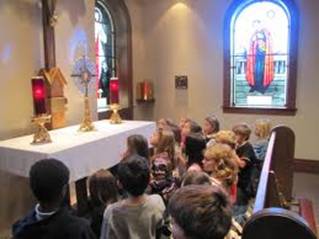 In the Gospel of Luke, Jesus also cleanses the temple, but he does it with whip in hand. He drives out pagan attitudes, in this case of the merchants who bought and sold and had transformed the temple into a series of little shops where they changed money. Jesus cleanses the temple, admonishing: It is written, ‘My house shall be a house of prayer’. He said nothing else. The temple was a sacred place. And we should enter there, in the sacredness that leads us to prayer.
In the Gospel of Luke, Jesus also cleanses the temple, but he does it with whip in hand. He drives out pagan attitudes, in this case of the merchants who bought and sold and had transformed the temple into a series of little shops where they changed money. Jesus cleanses the temple, admonishing: It is written, ‘My house shall be a house of prayer’. He said nothing else. The temple was a sacred place. And we should enter there, in the sacredness that leads us to prayer.
St Paul tells us that we are temples of the Holy Spirit. I am a temple. The Spirit of God is within me. And he tells us: ‘Do not sadden the Spirit of the Lord that is within you’! And perhaps also here we cannot speak of adoration, but of a type of adoration that takes place in the heart of a person who seeks the Spirit of the Lord within himself and knows that God is within him, that the Holy Spirit is within him. He listens and follows.
We too need to be continually purified through prayer, penance, and through the Sacraments of Reconciliation and the Eucharist. Thus in these two temples — the physical temple which is a place of adoration, and the spiritual temple within me where the Holy Spirit dwells — our disposition should be one of true piety that adores and listens, that prays and asks pardon, that praises the Lord. When we speak of the joy of the temple, what we are speaking about is this: the whole community in adoration, in prayer and thanksgiving, in praise. …In prayer with the Lord who is within me, since I am a temple; while I stand listening, ready and available.
Let us pray that the Lord might grant us true understanding of the meaning of the temple, so that we might grow in lives of adoration and listening to God’s Word.
The courage of definitive choices
In his homily at Holy Mass Monday, 25 November, the Pope commented on the first Reading of the day, taken from the Book of the Prophet Daniel, which recounts the story of the young Jewish men who found the courage to refuse the unlawful food imposed by King Nebuchadnezzar, and whom the Lord rewarded by making them physically and mentally more agile than the rest. The Pope began by noting that the young men “were in an extreme situation since they were slaves; in those days when someone fell into slavery, nothing was secure anymore, not even life”.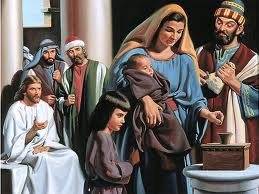 St Luke describes the poor widow who put two small coins in the offering box, thus giving to God all she had to live on. Jesus tells us that she was poor. At that time women didn’t have their husbands’ pensions to live on, they were poor. They were in an extreme situation. Both the young men and the elderly widow were in an extreme situation then, when they had to make a crucial decision.
St Luke describes the poor widow who put two small coins in the offering box, thus giving to God all she had to live on. Jesus tells us that she was poor. At that time women didn’t have their husbands’ pensions to live on, they were poor. They were in an extreme situation. Both the young men and the elderly widow were in an extreme situation then, when they had to make a crucial decision.
The widow went up to the temple to adore God, to tell him that he was above all things and that she loved him, and she gave all she had to live on. Hers was more than generosity, it was something else, she had no thought for herself. She could have said: ‘Lord, you know I need this to eat today’. However, she chose to adore God to the very end”.
The young men in the Old Testament also had the possibility of finding an emergency exit from their situation. They could have said: ‘We are slaves, we cannot fulfil the law here. We need to preserve our lives, not get too thin, not fall ill ... let’s eat!’ Instead, they said no. They made their choice: the Lord. And they found a way to remain faithful, even under very difficult circumstances.
The young men and the widow ‘took a risk’ and in their risk they chose the Lord. They acted from the heart, with no personal interest and not so as to attract attention to themselves, but rather because they knew that the Lord is faithful. They entrusted themselves to his eternal faithfulness. The Lord is always faithful, for he cannot deny himself.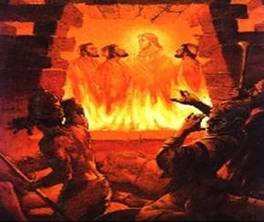 Entrusting oneself to the Lord’s faithfulness is a choice that we too have the opportunity to make in our Christian lives. At times this involves a great and difficult decision. Throughout the history of the Church, and even in our own times, there are men and women, young and old who make this decision. We realize it when we read the lives of the martyrs, when we read in the news about the persecution of Christians today. Let us think about our brothers and sisters who find themselves in extreme situations and who make this decision. They live in our own day and are examples for us. They encourage us to offer the Church our whole livelihood”.
Entrusting oneself to the Lord’s faithfulness is a choice that we too have the opportunity to make in our Christian lives. At times this involves a great and difficult decision. Throughout the history of the Church, and even in our own times, there are men and women, young and old who make this decision. We realize it when we read the lives of the martyrs, when we read in the news about the persecution of Christians today. Let us think about our brothers and sisters who find themselves in extreme situations and who make this decision. They live in our own day and are examples for us. They encourage us to offer the Church our whole livelihood”.
The Lord helped the young men and brought them out of difficulty; they were victorious and came to a good end. The Lord also helped the widow in the Gospel, for in Jesus’ praise of her, we find God’s praise ... and this is a victory. It will do us good to think about our brothers and sisters throughout history and even today who have had to make critical choices.
Let us think about the many mothers and fathers who make critical choices each day in order to continue on with their families, with their children. They are an example for us. Let us ask for the grace of courage, for the courage to continue on in our Christian lives, amid the day to day, and also in extreme situations.
The Master of time
“A Christian is a man or woman who knows how to live in the moment and also knows how to live in time” observed Pope Francis in his homily at Holy Mass Tuesday, 26 November. The Pope commented on the day’s Reading from the Gospel of St Luke (Lk 21:5-
“The ‘moment’ is what we have in hand right now. Perhaps we might feel that we are masters of the moment. But, it is a trap to believe that we are masters of time. Time is not our own. Time belongs to God.... We may be masters of the moment, but there is only one Sovereign over time: Jesus Christ. Therefore, the Lord counsels us: ‘Take heed that you are not led astray; for many will come in my name, saying, I am he! And the time is at hand! Do not go after them’ (Lk 21:8- How is it possible to avoid being led astray? Through prayer and discernment.. Jesus admonishes those who did not know how to discern the present moment,” citing as an example the parable of the fig tree (Mk 13:29-
How is it possible to avoid being led astray? Through prayer and discernment.. Jesus admonishes those who did not know how to discern the present moment,” citing as an example the parable of the fig tree (Mk 13:29-
Discernment helps us to recognize true signs and to know the way we should take at this moment. And prayer is necessary in order to live each moment well. Yet the only Lord and Master of time is God, and there is nothing we can do about this. There is no human virtue that has the least power to exert influence over time. The only virtue that can help us to confront the mystery of time must be given to us by the Lord: it is hope.
In this way, the Christian is able to move on the road of the moment, with prayer and discernment. But he hopes in the Lord as he awaits the end of time. Men and women of the moment and of time, of prayer and discernment and hope….
May the Lord grant us the grace to walk in wisdom. This, too, is a gift: that wisdom which, in the moment, leads us to pray and discern and which, in time, is God’s messenger that helps us to live with hope”.
Faith is never a private matter
“Prohibition against worshipping God is a sign of ‘general apostasy’. It tries to convince Christians to take a more reasonable and peaceful road, by obeying the tenets of worldly powers who try to reduce religion to ‘a private matter’. These forces especially do not want God to be worshipped with trust and fidelity”. This was the message Pope Francis imparted in his homily at Mass on Thursday, 28 November.
Commenting on the Readings from the day taken from the Book of Prophet Daniel and the Gospel of St Luke, Pope Francis began by noting that they make us think of the final days, the end of time, the end of the world, of the time of the final coming of Our Lord Jesus Christ. “In fact, in our lives, in the life of each one of us, we have many temptations. Many... The devil pushes us to be unfaithful to the Lord. Some times he pushes hard.” However, today’s liturgy speaks to us about a universal temptation, about a universal trial, about the time when the whole creation, the whole of the Lord’s creation will be faced with this choice between God and evil, between God and the prince of this world.”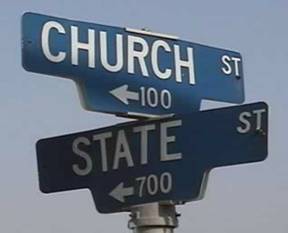 Explaining how even the Lord was tempted, Pope Francis said: “The devil began to test him at the beginning of his time in the desert. And he sought to convince him to take another, more reasonable, more serene and less dangerous path. At last, the devil revealed his intention: if you worship me I will give you this! He sought to be his god. Jesus was then tested during his public life: through insults, calumny, or when hypocrites confronted him in order to put him to the test. Even at the end of his life, on the Cross, he was put to the test by the prince of this world. Ultimately, however, Jesus’ Resurrection occurred in the manner willed by the Father.
Explaining how even the Lord was tempted, Pope Francis said: “The devil began to test him at the beginning of his time in the desert. And he sought to convince him to take another, more reasonable, more serene and less dangerous path. At last, the devil revealed his intention: if you worship me I will give you this! He sought to be his god. Jesus was then tested during his public life: through insults, calumny, or when hypocrites confronted him in order to put him to the test. Even at the end of his life, on the Cross, he was put to the test by the prince of this world. Ultimately, however, Jesus’ Resurrection occurred in the manner willed by the Father.
At this time of the liturgical year, the Church turns our thoughts to the end of this world, since it will come to and end, for the world as we know it is passing away. The Gospel tells us that all these things will occur, but, how long must we wait? In St Luke (cf 21:20-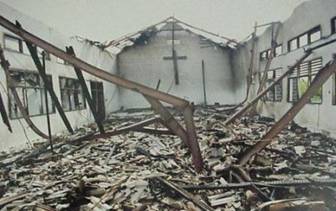 It is a calamity. However, when Jesus speaks of this calamity in another passage, he tells us that it will be a profanation of the temple, a profanation of the faith, of the people. It will be an abomination. It will be the abomination of desolation (Dan 9:27). What does this mean? It will appear to be the triumph of the prince of this world, the defeat of God. It will seem, in that final moment of calamity, as though he has taken over the world and has become master of the world.
It is a calamity. However, when Jesus speaks of this calamity in another passage, he tells us that it will be a profanation of the temple, a profanation of the faith, of the people. It will be an abomination. It will be the abomination of desolation (Dan 9:27). What does this mean? It will appear to be the triumph of the prince of this world, the defeat of God. It will seem, in that final moment of calamity, as though he has taken over the world and has become master of the world.
This battle between the living God and the prince of this world can also be traced out in the first Reading from the Book of Daniel (6:12-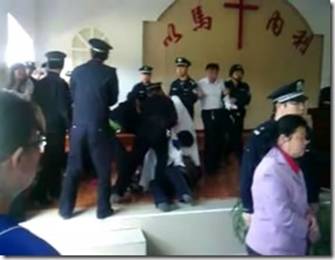 The word of God reminds us, how Christians that suffer through times of persecution, through times when worship is prohibited, are a prophetic sign of what will happen to everyone. However, precisely in moments such as these, when the times of the pagans are being fulfilled, raise your heads, because your redemption is drawing near. Yet we should not be afraid, God asks us for faithfulness and patience. Faithfulness like that of Daniel, who was faithful to his God and who worshipped him to the end. And patience, for every hair on your head is counted, as the Lord has promised.
The word of God reminds us, how Christians that suffer through times of persecution, through times when worship is prohibited, are a prophetic sign of what will happen to everyone. However, precisely in moments such as these, when the times of the pagans are being fulfilled, raise your heads, because your redemption is drawing near. Yet we should not be afraid, God asks us for faithfulness and patience. Faithfulness like that of Daniel, who was faithful to his God and who worshipped him to the end. And patience, for every hair on your head is counted, as the Lord has promised.
Pope Francis concluded by inviting those present to reflect on “this general apostasy called the prohibition of worship”, and to ask themselves: “Do I worship God? Do I adore Jesus Christ the Lord? Or do I do so by halves and play games with the prince of this world? Worshipping to the very end with trust and fidelity is the grace we should ask”.
The Lord redeemed us and made us free
In his homily at Holy Mass Friday, 29 November, Pope Francis commented on the day’s Gospel from St Luke, in which the Lord instructs his disciples regarding what is to come through the parable of the fig tree. “Look at the fig tree,” the Lord says, “and all the trees; as soon as they come out in leaf, you see for yourselves and know that the summer is already near”.
Jesus with simple words, encourages us to think in order to understand … to think not only with our head, but also with our heart, with our spirit. This, is what it means to think as a Christian in order to understand the signs of the times. The Lord wants us to understand what is going on in our hearts, in the world and in history. He wants us to understand the meaning of what is happening around us. In fact, it is in answering these questions that we come to perceive the ‘signs of the times’.
Yet in this we have an enemy against us. The enemy is the spirit of the world, who does not want us to be a people. Rather, he wants us to become ‘the masses’ who are neither thinking nor free. A determinate way of thinking is imposed, this thought is publicized, and people are expected to keep to this line of thought, which is uniform, weak, and yet so widespread. In practice, the spirit of the world does not want us to place ourselves before God and ask: why is this happening? To distract us from the essential questions, he therefore proposes a pret-
In practice, the spirit of the world does not want us to place ourselves before God and ask: why is this happening? To distract us from the essential questions, he therefore proposes a pret-
Of course, of ourselves we can do nothing. We need the Lord’s help, we need the Holy Spirit in order to understand the signs of the time. In fact, it is precisely the Spirit who gives us the intelligence to understand. It is a personal gift given to every man that enables him to understand what is occurring and also the path the Lord wishes him to take in life.
Let us ask the Lord Jesus for the grace of sending us his spirit of understanding, so that our thoughts might not be weak, uniform, and according to our own tastes but rather in accord with God and with this thinking — with mind, heart and spirit — which is the Spirit’s gift, to seek to understand well the signs of the times.